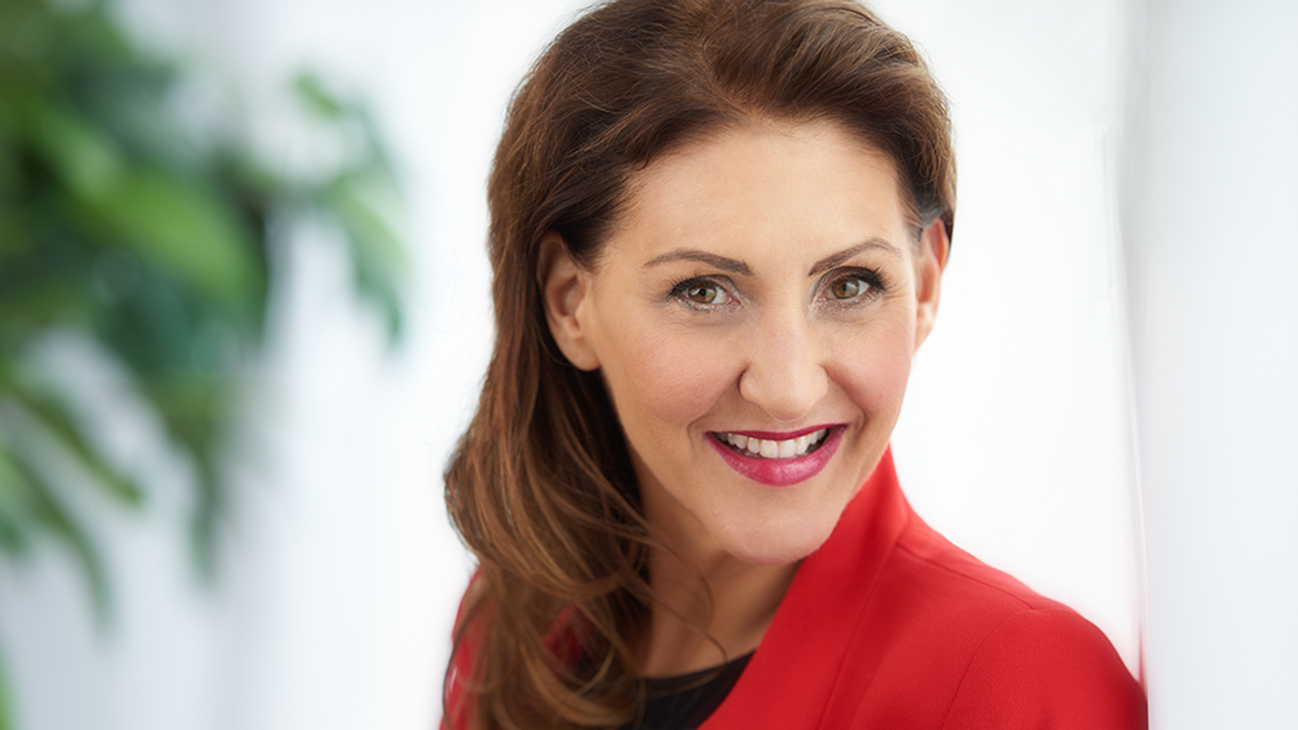Barbara Stegemann’s entrepreneurial vision was formed after her best friend—a soldier—was severely wounded in Afghanistan. Understanding that supporting Afghanistan’s economy was key to building stability for its people, Stegemann created The 7 Virtues, a company that sources organic, fair trade essential oils from countries experiencing turmoil (such as Afghanistan, Haiti the Middle East and Rwanda). Despite addressing complex global matters in her talks, Stegemann uses humour to explain how individuals can use business for good and effect change, both at home and worlds away.
A recent profile in Atlantic Business Magazine, goes deep on some of the stories that have driven and continue to drive Stegemann to change the business world. A bit of that story is below, but the comprehensive long-read is definitely worth checking out for a complete picture of the incredible work Stegemann is doing.
Three thousand gourde,” the porter said. “For your check-in.”
It was November 2016, and Barb Stegemann (a high-energy motivational speaker, author of The 7 Virtues of a Philosopher Queen and president and CEO of The 7 Virtues Beauty Inc., a Halifax-based fragrance company with a global social entrepreneurial mission) was standing at the American Airlines check-in counter at the airport in Port au Prince.
She’d traveled to Haiti to meet with local essential oils suppliers, as well as to volunteer in the aftermath of the devastating Hurricane Matthew, which had ripped through that incredibly poor, hard-luck country that was then still reeling—and still far from recovered—after a massive 2010 earthquake.
It was that earthquake (which killed more than 250,000 Haitians, displaced 1.5 million more and damaged or destroyed close to 4,000 schools) that had brought Stegemann to Haiti in the first place. Having already made a name for herself by creating perfumes sourced from fair trade suppliers in Afghanistan in order to goose that war-ravaged country’s legal economic development, Stegemann was the only Canadian invited to join a Clinton Foundation post-earthquake recovery trade mission to Haiti in 2012. That mission led to the launch—appropriately on United Nations International Day of Peace—of Vetiver of Haiti, a perfume made from an essential oil Stegemann had purchased there.
On this buying-volunteering trip, however, she’d encountered one of the realities often faced by those who want to bring social change to warand- disaster plagued countries: endemic corruption. The day before she’d arrived, she’d been told a Norwegian relief vessel filled with supplies had been forced to turn away because local officials demanded “impossibly high bribes” the ship’s owners could not pay.
And now, admittedly on a much smaller scale, Stegemann herself was smacking up against the same dilemma. While in Haiti, she’d bought a large box of shea butter and natural oils as a way to support the local women who’d produced it. At the airport on her way back to Halifax, she’d tipped the porter $15 USD to carry the box from the cab to the ticket counter. But before he got there, he’d handed it over to another porter, who’d ferried it up to the American Airlines counter and instructed Stegemann to wait at the end of a long line. Less than a minute later, Stegemann recalls, “he came back and brought me to the airline agent at the kiosk and told me she would check me in. I felt relieved.”
Until, that is, she’d been checked in and realized the porter was now insisting she also needed to pay another 3,000 Haitian Gourde (about $45 USD) to the agent for the speedy checkin. Stegemann explained she’d already paid the other porter, then said she had no more cash on her. Unabashed, the airline agent escorted Stegemann to a bank machine outside the airport so she could withdraw the money, which the agent then slipped into her pocket before walking Stegemann back through security.
Perhaps corruption will end when North American airlines and every company working in Haiti refuse to participate in bribes.
When Stegemann got back to Canada, she called American Airlines to complain. Officials apologized and refunded her money. But “that’s not the point,” Stegemann tells me today. “I don’t care about the $45.” What she does care about is the casual corruption she encountered, the kind that discourages those who want to help. “Perhaps corruption will end,” she muses, “when North American airlines and every company working in Haiti refuse to participate in bribes.”
It can be done, she says. Consider Rwanda, the genocideblighted country where Stegemann also sources essential oils for perfumes. “When I visited Rwanda, the fastest growing and safest country in Africa, they had a billboard, interestingly just before the airport that said, ‘If you see corruption, you are safe. Please report it.’”
As we talk, it is clear Barb Stegemann is already “ramping up” her rant on the issue of corruption. “It’s my new obsession,” she jokes. “That’s the journalist part of me.”
Read the full story here.

